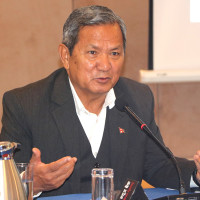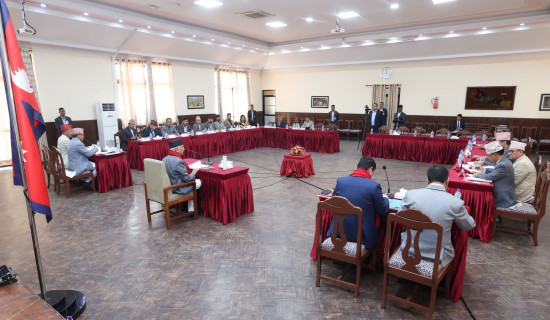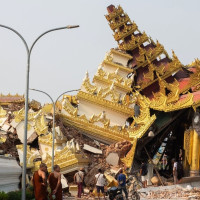- Monday, 31 March 2025
Cash In On Soft Power
Today, international relations have transitioned towards the exercise of soft power. It has become an important tool for countries to better their global standing and influence the world. As Nepal exercises a little hard power, soft power can be an intense way to burnish her international image, hold sway over others, and gain spillover benefits.
Countries like South Korea are regarded as the best examples regarding the strategic use of soft power. Its ‘Hallyu Wave’ has extensively promoted cuisine, music, art, dramas, makeup, and skincare in every country. The wave has caught the attention of younger generations, prompting rapid cultural exchange. Also, the proliferation of digital communication media has helped the nation export its cultural products with ease. South Korea’s growing tourism industry is one evident area of soft power’s spillover advantages. In 2024, the country received as many as 16.4 million foreign tourists wishing to experience the popular Korean culture.
Having been coined by Joseph Nye in the 1980s, the term ‘soft power’ talks about the ability of a state to wield global influence and power through persuasion and attraction, rejecting the use of force or coercion. Nye highlights three main ways a country can increase its soft power, namely through culture, political values, and foreign policy.
Unlike hard power, which stresses the use of force, soft power’s approach to international relations is a safe bet and a highly successful one. Soft power requires much lower costs than hard power. While hard power can bring about destruction and weaken a country’s global standing, soft power can help in pursuing national interest through positive portrayal.
In Nepal’s case, soft power meets all three conditions. The nation is blessed with diverse cultures, cuisines, festivals, music, languages, and lifestyles, among other strengths. Likewise, as home to the world’s tallest mountain and numerous other snow-clad peaks, rich water resources, and jaw-dropping natural beauty, Nepal has the ability to utilise these assets for realising economic growth. Nepalis are renowned for their great hospitality and kindness.
Not just this, Nepal’s reliable contribution to the United Nations Peacekeeping Operations (UNPKO) demonstrates the country’s commitment towards global peace and security. In recent times, the country has been the highest troop contributor to the UNPKO. This can be a major soft power potential for Nepal, establishing itself as a peace-loving nation in the globe.
The core political values, as reflected in the Constitution of Nepal, include socialism, fundamental freedom, the rule of law, and civil liberties, among others. These values are also key to enhancing the country’s international image. Besides, the honest and diligent Nepalis living abroad also hold significant power on the global stage.
Nepal’s foreign policy calls for maintaining neutrality and non-alignment in its global interactions. For these soft power potentials to gain global attention, the nation is required to make positive changes in domestic policies. The recent incident of Nepal getting greylisted by the Financial Action Task Force, a global anti-money laundering organisation, and the delay in the conclusion of the transitional justice process can put a negative light on its image. Hence, there is a growing need to tackle all such impediments that are dampening the country’s reputation.
Now, identifying a myriad of soft power potentials and capitalising on them is a pertinent matter. Therefore, Nepal’s diplomatic channels and non-state actors must be proactive in increasing Nepal’s visibility internationally.















